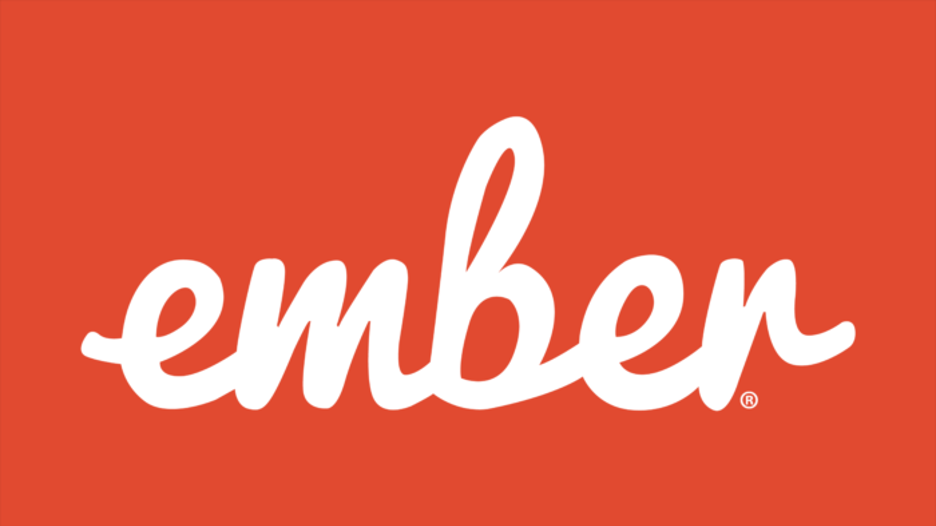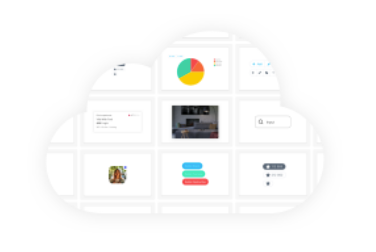

10 Node.js Frameworks Every Developer Should Know
source link: https://blog.bitsrc.io/top-10-nodejs-frameworks-every-developer-should-know-f6eea8021eb0
Go to the source link to view the article. You can view the picture content, updated content and better typesetting reading experience. If the link is broken, please click the button below to view the snapshot at that time.
10 Node.js Frameworks Every Developer Should Know

Newer and more specialized software frameworks keep emerging. While developers often struggle to keep track of so many different options, each one of them targets a specific audience and requires a very specific skill set. That’s why the market is saturated with so many different frameworks that each target a very particular niche. However, it doesn’t mean you have to pick only one framework for your project. If you are a freelance Node developer or just someone who works on numerous small projects using Node, chances are that sooner or later you’ll need to use another framework for some tasks.
To help you make the right choice, here is an overview of the top 10 Node.js frameworks every developer should know about:
1. Express.js
Created by TJ Holowaychuk, Express.jsis the most suitable framework for most Node.js developers. It is relatively mature and built on the base of connecting. Supports features such as routing, configuration, template engine, POST request parsing, and more.
While Express is already quite a solid framework, it is used on a much smaller scale compared to such analogs as Rails, CakePHP, or Django. Express is more comparable to a tool like Sinatra and, unfortunately, has not yet made much effort to move away from the Ruby roots toward something more natural for JavaScript. Anyway, using it is much easier and faster than creating your own framework, and at the moment it is the worthiest choice.
Express.js includes the attached properties, such as simplified multiple routing, database integration, template engines, and so on. Moreover, advanced Node.js developers can also write extensions, plugins, and packages for it. Well-known websites and applications, such as Geekli.st, MySpace, Yummly, Klout, and Segment.io built on Express.js.
Express also gives you the flexibility to use any signature-matching template engine, any user authentication scheme, and any third-party database. It will help you determine the structure of the project directory in a way that is convenient for you.
Features of Express.js
- A highly advanced routing mechanism preserves the webpage using its URLs.
- Provide templating engines that help build dynamic web page content by building the HTML templates on the server-side.
- Provides readily-used features of Node.js in the form of functions that saves time and leads to faster server-side development.
- Express.js makes debugging easier.
2. Hapi.js
Hapi.jsis the best Node.js web framework, which is used for developing application program interfaces. Thanks to a strong plugin system Hapi.js, you can fully manage the development process. Hapi.js motivates the developer to focus on the reuse logic instead of spending time building the infrastructure.
It is mainly known for its robust plugin system and numerous key features consisting of configuration-based functionality, input validation, error handling, caching implementation, and logging. This framework is especially useful for passing a database connection.
Its simple design makes it easy to get started. At its core, Hapi uses many of the latest features of ES6 JavaScript, such as ES6 promises. For those of you who have used Express before, Hapi lets you try something new and experience all the latest JavaScript features. This framework is used by such large companies as Concrete, PayPal, Disney, and Walmart.
Features of Hapi.js
- Powerful input data validation
- Improved error handling system
- Caching implementation
3. Koa.js
Koa.js is a minimal and flexible Node.js web application infrastructure, which provides a robust set of features for web and mobile applications. It is an open-source framework developed and maintained by the creators of Express.js, the most popular web framework for Node.js.
The purpose of the development was to fill in the shortcomings of Express.js. Due to the uniqueness of the script and methods, Koa can work in different browsers. It also works without using callbacks and has a powerful error handling system.
Features of Koa.js
- Using the necessary generators to manage and process callbacks
- Effective error handling procedures
- Component-based blocks
- Cascading middleware model and no callback hell
4. Total.js
Total.js was created by Peter Sirka, a programmer from Slovakia, in 2013. Then in 2013, Node.js was just gaining popularity. The main idea of the developer was to create a kernel that would have a large basic functionality, while not having to install a large number of additional dependencies, unlike Express.js, which has a small amount of basic functionality, and you need to expand it at the expense of external modules. Total.js can also be extended with different modules from npm. Art architecture Total.js something reminds me of Rails for Ruby or the Laravel framework for PHP.
Total.js requires minimal maintenance and provides high performance and flawless scaling. Team Total.js tries to meet the requirements of users in order to make the platform convenient and attractive for users around the world. For this reason, Total.js has every chance to gain popularity in the coming years.
Features of Total.js
- Software architecture according to the scheme: model-view-controller
- Extensible and asynchronous framework
- Provides full support for the RESTful routing engine
- Full support for WebSocket and media streaming protocols
5. Derby.js
An MVC framework that makes it easier to write real-time collaboration applications that work in Node.js, and in browsers.
It provides seamless data synchronization between the server and the client. Derby.js is well known as the full-stack Node framework.js for writing modern web applications. You can use it to create custom code and develop high-performance web applications. Thanks to its unique characteristics, Derby.js is gaining popularity nowadays.
Features of the Derby.js
- MVC template for both client and server-side
- Ideal for mobile and web application development
- Using server-side rendering for fast page loading, HTML templates, and search engine support
6. Mojito.js
Mojito is another powerful mobile app development platform created by the Yahoo Developer Network. Mojito also acts as an MVC application framework and can build high-performance mobile and web applications using JavaScript, CSS3, and HTML5.
Mojito offers the development of high-performance and standard cross-platform applications that run on both the client and server-side since the client and server components are written in JavaScript. It provides a convenient way to collect data and is ideal for on-premises development environments and tools.
It works as a module that connects very well to other core Node modules. Mojito is suitable for simplifying the localization and internationalization of libraries.
The Mojito framework is available on GitHub and is distributed under the BSD license.
7. Adonis.js
AdonisJs is one of the most popular Node.js frameworks running on all major operating systems. It has a static ecosystem for writing server-side web applications. Thus, you can choose the appropriate package, focusing on specific business needs.
Adonis is a real MVC framework for Node.js with the right framework. It carries the concepts of service providers from the popular Laravel PHP framework for creating large-scale applications, as well as using all the features of ES6 to make your code more accurate and supported.
Features of Adonis.js
- Support for an ORM consisting of SQL databases
- Efficient creation of an active record-based SQL query
- Easy-to-learn query builder for creating simple and fast queries
- Providing support for No-SQL databases such as MongoDB
8. Keystone.js
Keystone.js is a content management system and framework for creating server-side applications that interact with a database. It is based on the Express platform for Node.js and uses MongoDB for data storage. It is an alternative to CMS for web developers who want to create a data-driven website, but do not want to move to the PHP platform or too large systems such as WordPress.
While WordPress can be configured by non-very technical users, KeystoneJS offers the control that professional users need to develop new websites, although it is still significantly easier to work with KeystoneJS than to create a website manually from scratch. It not only offers a platform for building websites; you can replace almost everything on it and develop more specialized systems, such as apps and APIs.
Features of Keystone.js
- Automatically generated admin user interface
- Lightweight and easy to set up
- Easily extensible
- Compatible with third-party services
9. Socket.io
Socket.io is the best Node.js server and web framework for creating real-time web applications. It enables event-based communication between the Node.js server and the browser. Socket.IO acts as a backend library for Node.js and as a frontend library in the browser.
The main properties of Socket.io consist of binary streaming, asynchronous I/O processing, and instant messaging. The framework allows for real-time concurrency for document collaboration needs.
Socket.IO is compatible with all operating systems, devices, and browsers. This framework is used by top technology companies, such as Microsoft, Trello, Yammer, and Zendesk.
Socket.IO is the solution around which most real-time systems are built, providing a bidirectional communication channel between the client and the server. This means that the server can send messages to clients. Whenever an event occurs, the idea is that the server will receive it and send it to interested connected clients.
10. ActionHero.js
ActionHero.js is one of the most well-known API frameworks. It will help you quickly develop scalable and reusable Node.js API servers for your projects. ActionHero acts as a toolkit that will allow you to build such API servers that will initially work together with existing applications and platforms. With tens of thousands of users, you can always find the right answers and ideas to ensure a daily efficient workflow with ActionHero.
The goal of ActionHero is to create an easy-to-use set of tools for creating reusable and scalable APIs for HTTP, WebSockets, and others. It was built from the ground up to include all the features we expect from a modern API platform.
The type of workload that ActionHero does well includes creating and using APIs, storing and retrieving data from databases, modifying files, and similar tasks.
ActionHero has 5 key concepts that make up each application: actions, tasks, initializers, chat, and servers.
Conclusion
Node.js is a highly modular and flexible platform that can be used for creating a variety of applications.
Although several specific node frameworks have emerged over time to fill specific needs, the proper framework is often a matter of taste. The right framework will depend on the type of project you are building, the types of features you need, and whether you need to standardize on a specific toolset or not. That being said, there are a number of critically important factors that should be considered when choosing NodeJs framework. Using the wrong framework can cause serious and irreversible damage to your project.
The first thing to consider is whether you want a full-stack framework or just a tool for building web apps with Node.js. The second is whether you need cross-platform support, and if so, which platform you want to run your application on. Safety and security are also important factors to consider. While some of the older ones (like Express.js) were fairly secure, newer frameworks like Koa.js and Hapi.js may have security flaws that have not been publicly disclosed by authors.
Bit: Feel the power of component-driven dev
Say hey to Bit. It’s the #1 tool for component-driven app development.
With Bit, you can create any part of your app as a “component” that’s composable and reusable. You and your team can share a toolbox of components to build more apps faster and consistently together.
- Create and compose “app building blocks”: UI elements, full features, pages, applications, serverless, or micro-services. With any JS stack.
- Easily share, and reuse components as a team.
- Quickly update components across projects.
- Make hard things simple: Monorepos, design systems & micro-frontends.
Recommend
About Joyk
Aggregate valuable and interesting links.
Joyk means Joy of geeK
